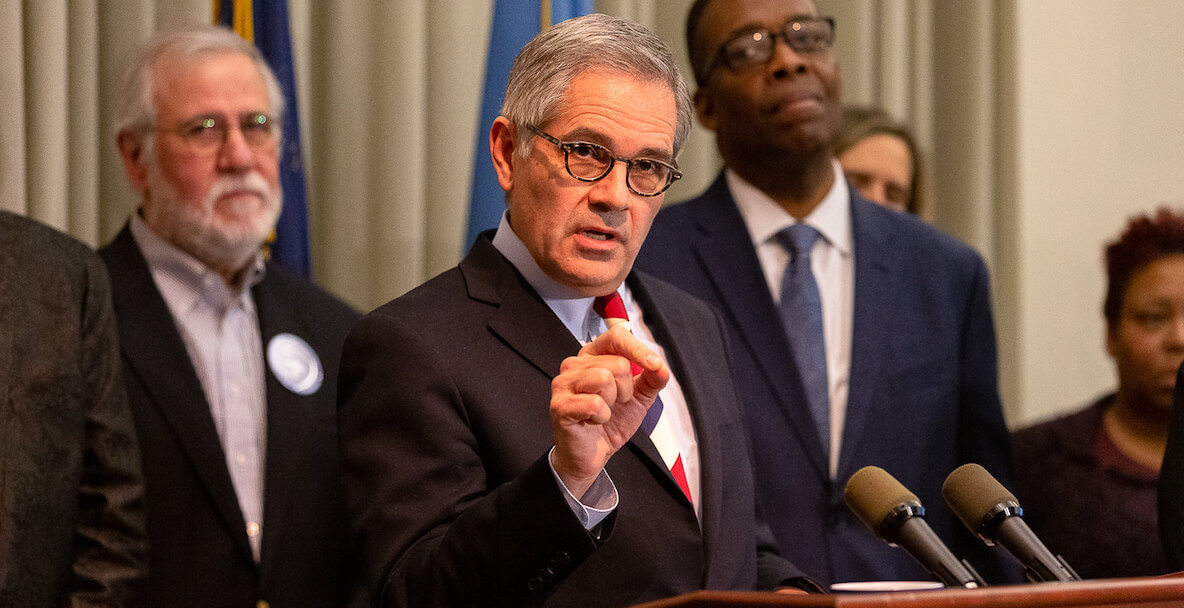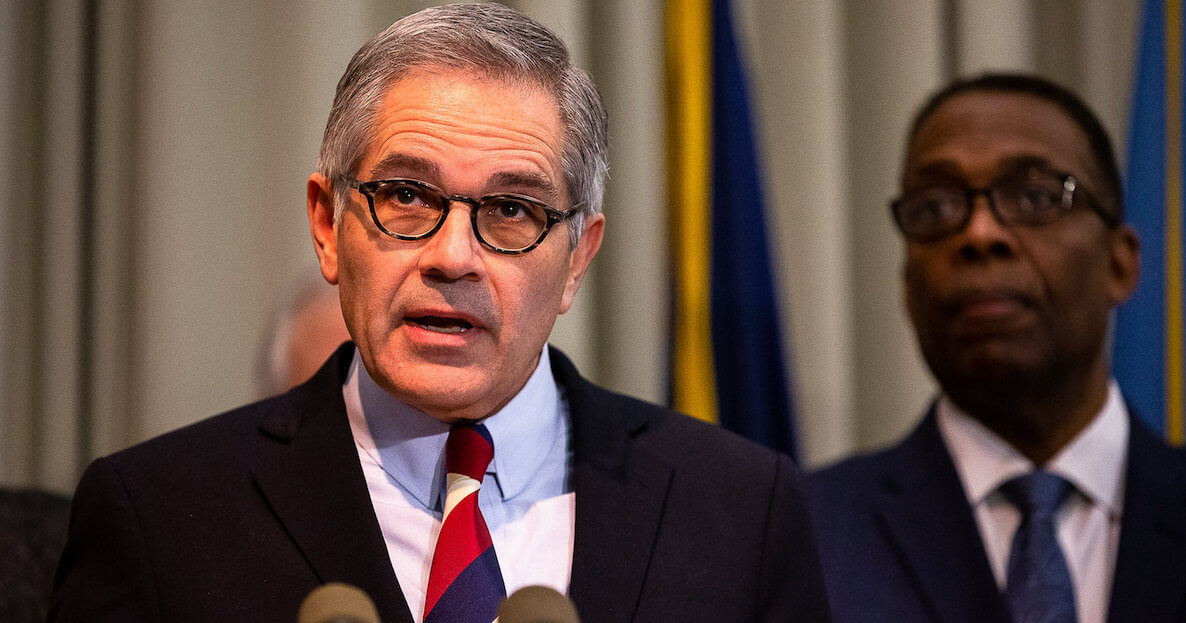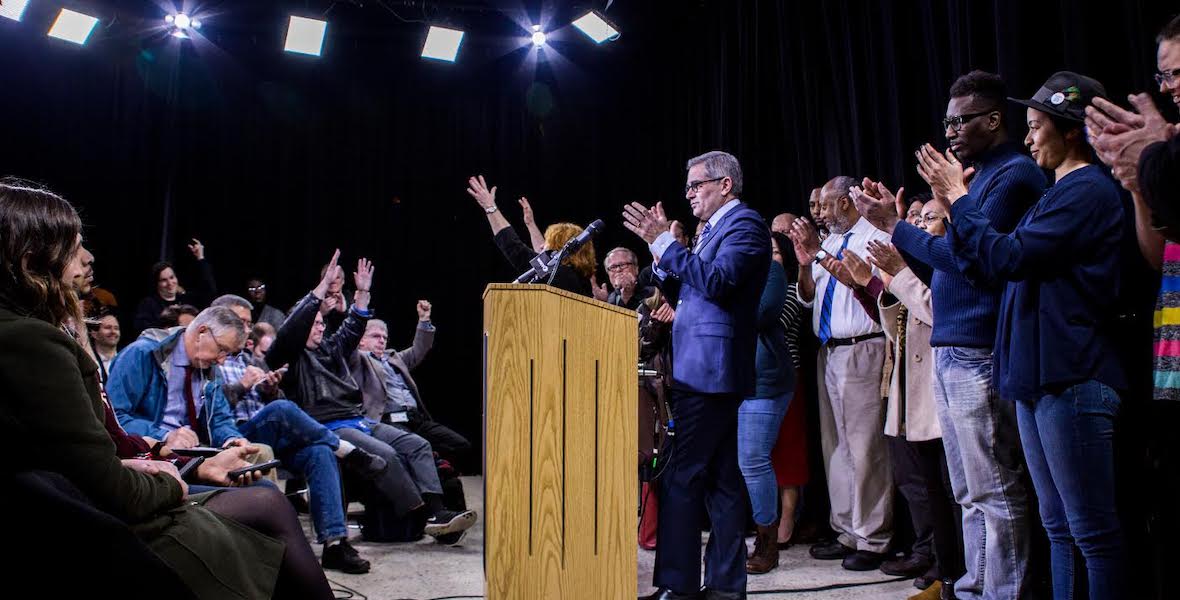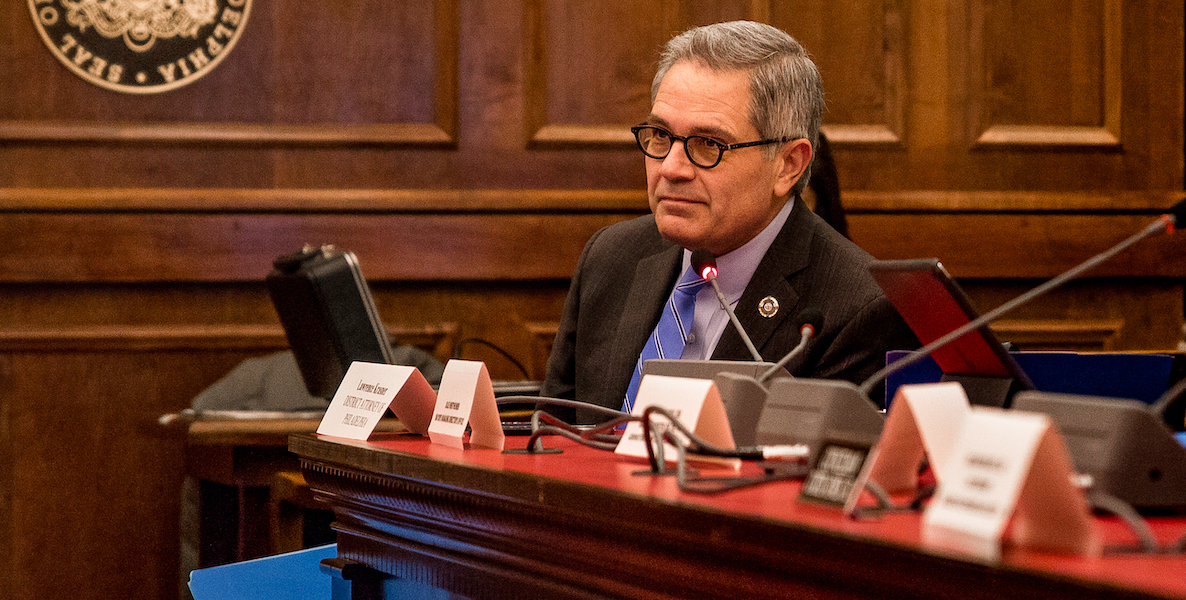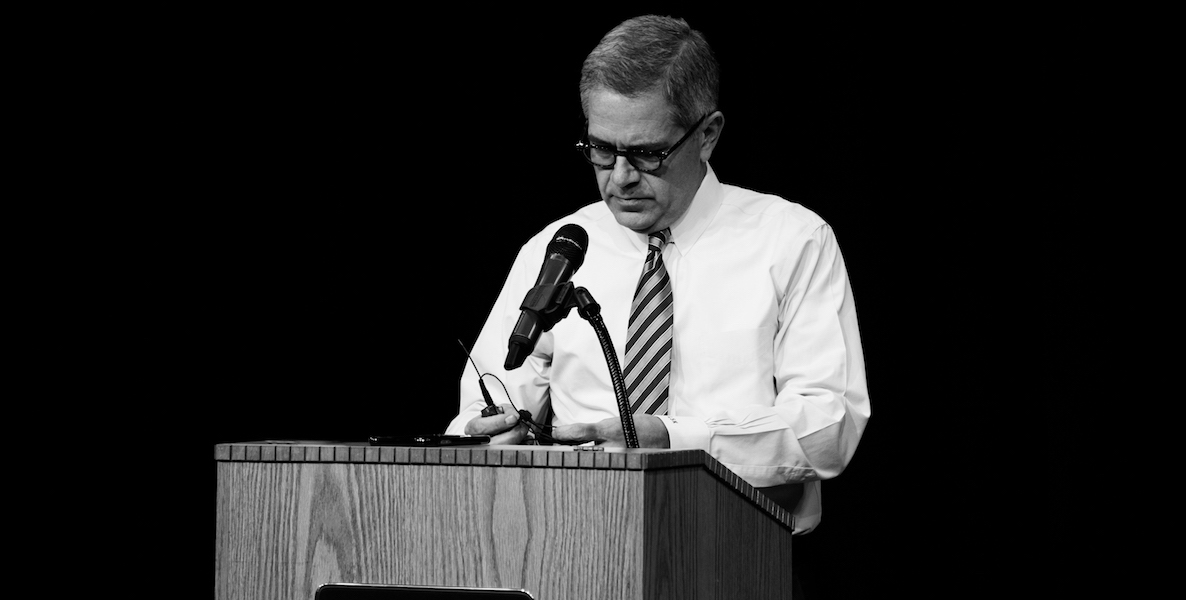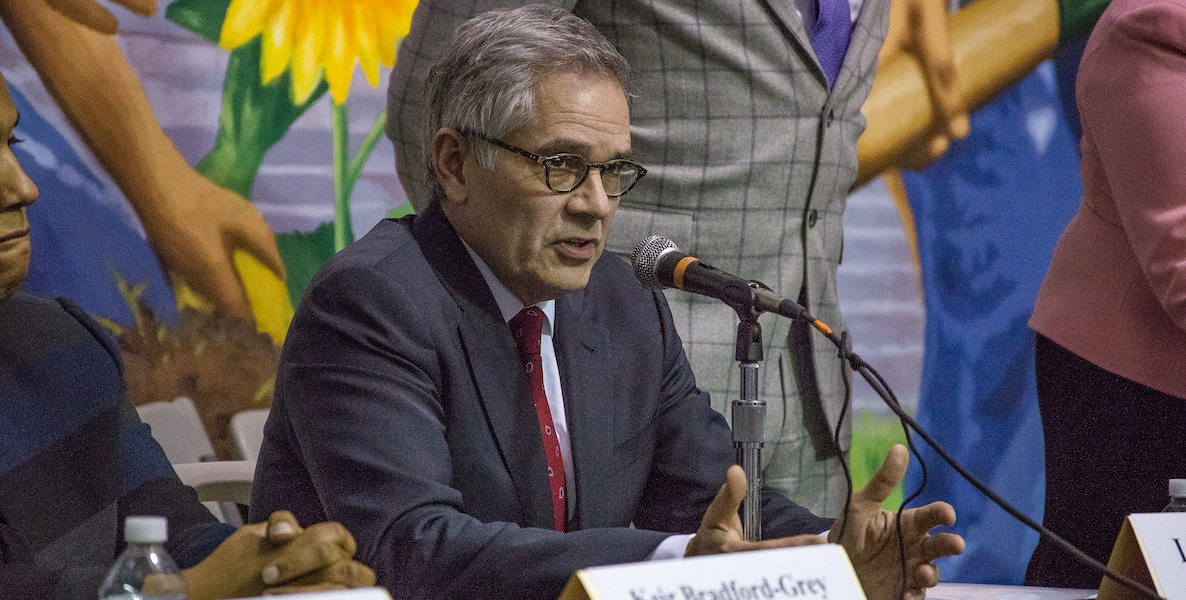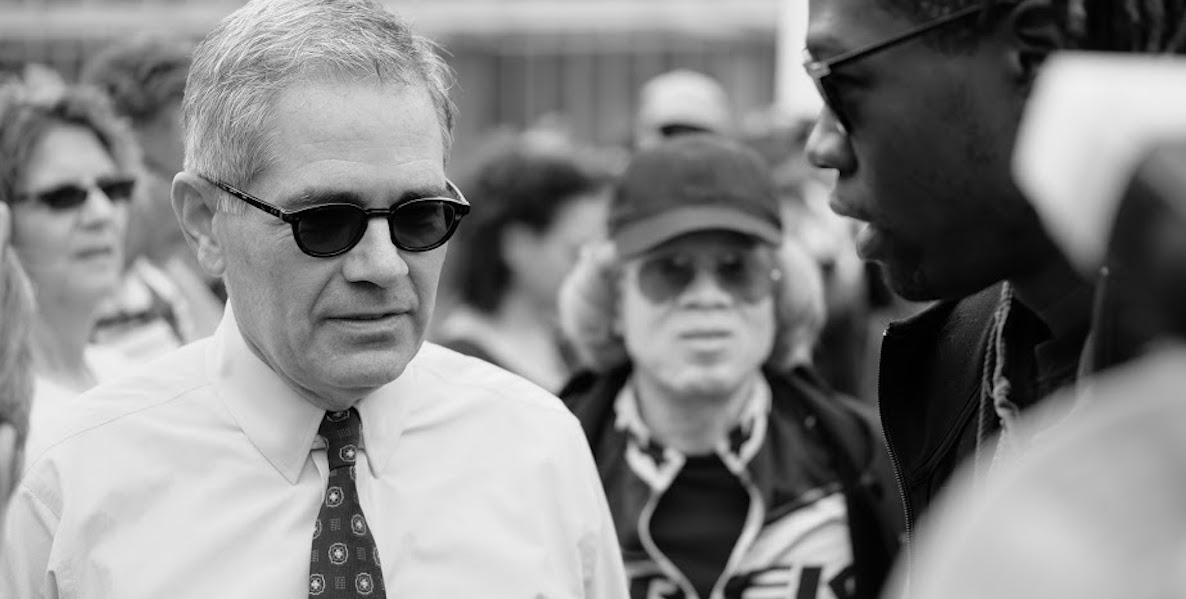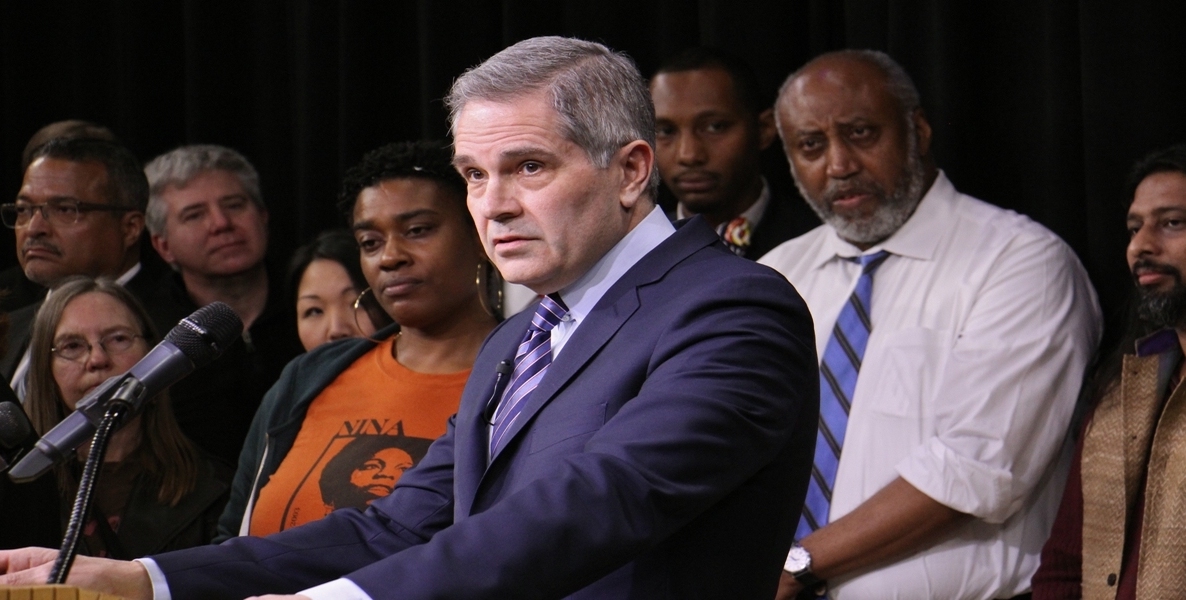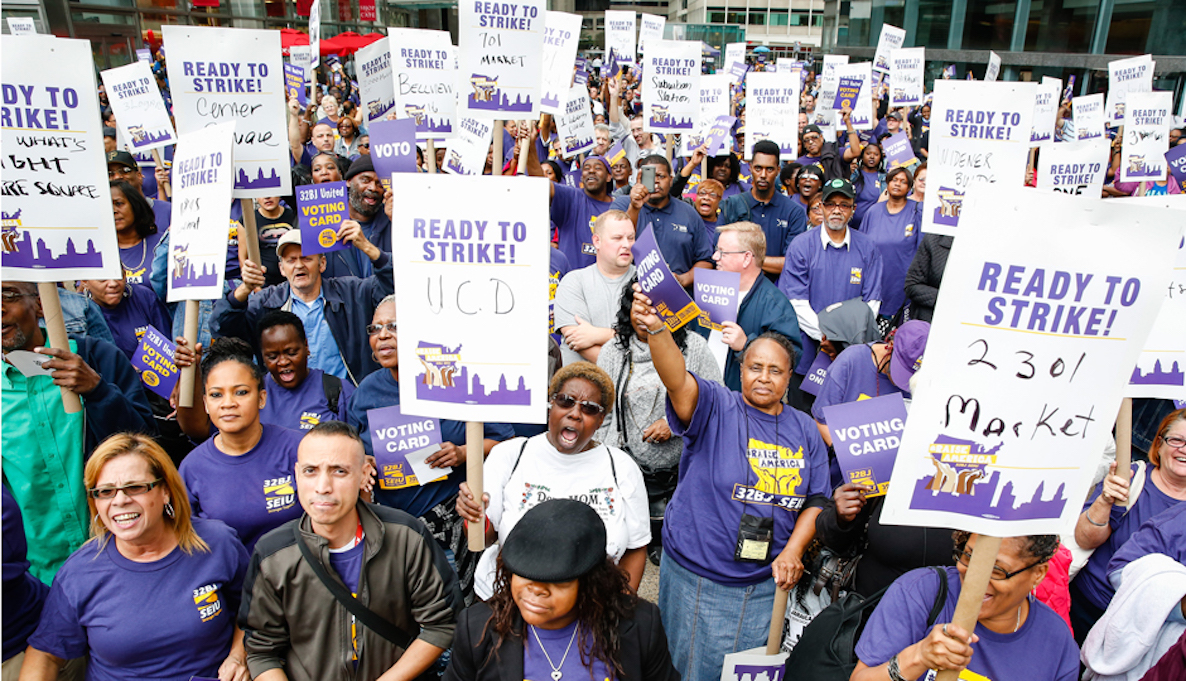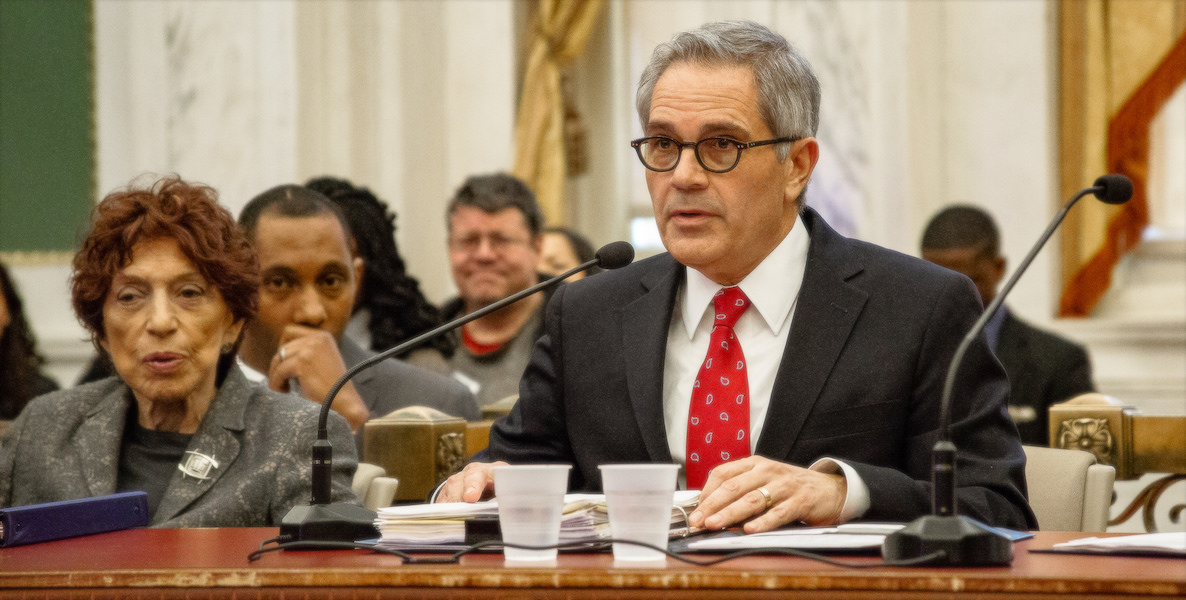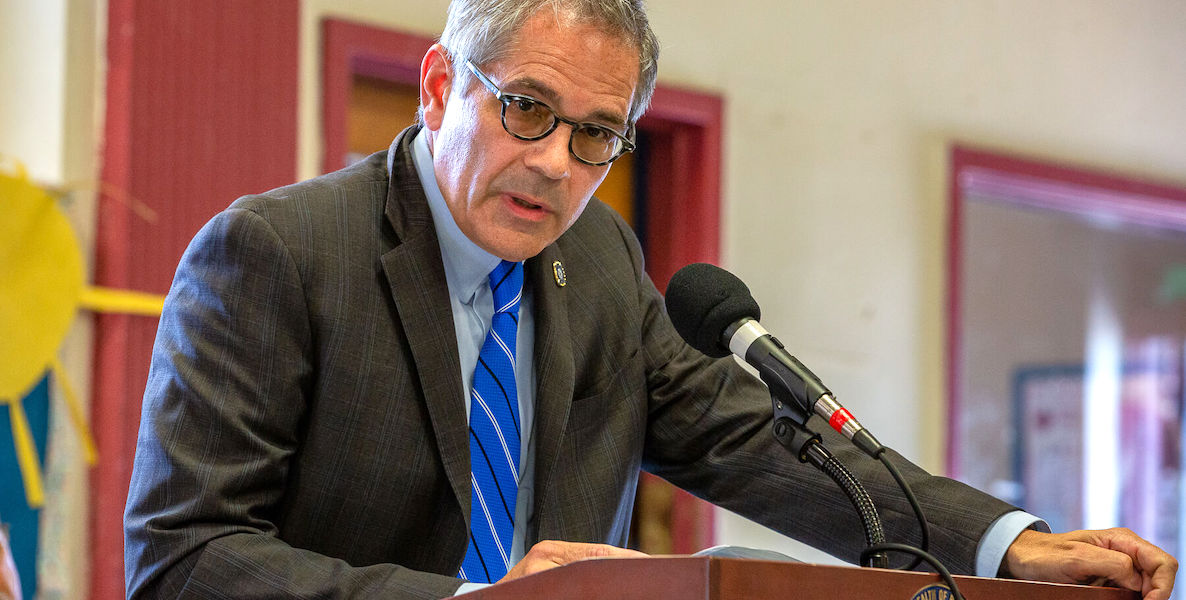We’re less than six weeks out from a district attorney’s election that will be seen nationally as a referendum on the progressive prosecution movement, and all seems eerily quiet. It’s a strangely low-key campaign at a time when we’re being ravaged by a historic murder and gun violence epidemic.
You know the chilling statistics. Philadelphia had 499 murders last year, the most in three decades. And it wasn’t because of the pandemic. The city’s murder rate has steadily risen in each year of both Jim Kenney’s mayoralty and the tenure of District Attorney Larry Krasner.
This year, though, we’ve jumped the shark. We’re on pace for over 600 murders—the most ever. An Inquirer story last week laid out some even more disturbing findings. Since Krasner took office, the number of gun crime arrests has nearly tripled, but the conviction rate for gun crimes has plunged from 63 percent in 2017 to 49 percent in 2019. In January, I reported that, under Krasner, homicides have jumped a whopping 58 percent; just 21 percent of shootings since 2015 led to criminal charges, and less than one-tenth of those resulted in convictions.
MORE ON LARRY KRASNER AND THE MURDER RATE
The DA’s own data dashboard shows that, every year of his tenure, Krasner’s office has dismissed or withdrawn more violent cases and gun cases than the year before. In fact, the average annual number of such cases that were dismissed or withdrawn has increased by 85 percent during Krasner’s tenure, compared with the four years before he took office. All of this despite the fact that the police are making more gun arrests than at any time since 2015.
What is Krasner’s response to this damning evidence? Is it to appear before the cameras, locked arm-in-arm with the police commissioner and mayor, to announce a state of emergency and a plan to stop the violence? Is it to drop his de facto opposition to innovative law enforcement techniques like focused deterrence that have helped lower the murder and gun violence rate in cities like Oakland and Boston? Is it to issue a mea culpa, acknowledging that, in his well-meaning zeal to decarcerate, he blurred the all-important distinction between reform and revolving-door justice?
Nope, nope, and nope. Voters in the shooting gallery that has become Philadelphia have only one opportunity to hold someone accountable during the primary election. Kenney is a lame duck and Commissioner Outlaw doesn’t answer to the voters.
That leaves Krasner.
Krasner sticks to his message
Remember the way Ronald Reagan framed the election in 1980? “Are you better off now than you were four years ago?” he urged voters to ask themselves. Well, in last week’s Inquirer story, we finally heard Krasner’s answer to Philly’s modern-day version of Reagan’s question: “Are you safer now than you were four years ago?” And Krasner’s answer is one that is no doubt making the body of Harry Truman in an Independence, Missouri, cemetery gyrate in its grave. Because, for Krasner, the buck always stops elsewhere.
“Yes, enforcement is a small part of the story,” Krasner told the Inquirer. “The big part of the story is not that. The big part of the story is this city’s chronic failure to invest in prevention that the community is crying out for. That is where we have to go.”
You’ve gotta hand it to him: Larry Krasner, like most other ideologues, is painfully consistent. Ever since the civil rights attorney who made his living suing the police first ran for D.A., he’s been making the case that funding law enforcement drains much-needed investments from underfunded schools and neighborhoods—the very type of investments, he says, that truly fight crime in the long run.
He may be right, if he were running for City Council or mayor. But, in a district attorney race, Krasner’s long-term argument over budgetary priorities when people are dying right now is really a type of jury nullification. In the Inquirer piece, much to the dismay of Truman’s ghost, Krasner absolves himself by blaming the cops for making weak arrests and witnesses for not showing up in court. (A real problem, but one that was also in effect prior to Krasner’s tenure, when the DA’s office posted significantly better conviction rates.)
If you scoff at the notion that Krasner is blinded by ideology, can we at least agree that his office’s job performance raises significant competency questions?
“I think it’s always a good thing to get guns off the street,” he says. “But it is not the primary job of police to harvest guns. It is the primary job of police to arrest people with solid evidence that can be proved beyond a reasonable doubt…Are we going to replace a war on drugs with a war on guns, and are we going to use that as an excuse for mass incarceration?”
How about a war on murder? Or should we be setting free murderers, too? To Krasner, ever the litigant, there is no nuanced law enforcement policy discussion. To him, combatting mass incarceration is a zero-sum game. A city needs a top law enforcement official who, yes, seeks to right injustices—Krasner deserves credit for many of his reforms, like the exoneration of 17 convicted murderers—but who also administers justice. And that often means putting away those who would otherwise terrorize civil society.
The tragic irony of Krasner’s “progressivism” is that what even Commissioner Outlaw has referred to as his office’s “revolving-door” prosecution has wreaked havoc on primarily Black and Brown communities. How in the world is that a progressive outcome?
Carlos Vega, the longtime prosecutor who was fired by Krasner and who is now challenging him, says it pithily: “The city needs a prosecutor, not a social worker.” But I’d suggest that’s not exactly right: The city needs a prosecutor and a social worker, someone who tempers justice with mercy; someone who, while committed to reversing mass incarceration, recognizes that there is both desperate need for reform (the runaway parole and probation system ensnares citizens in its grip and creates career criminals) and for incarcerating the right people.
What Krasner has done with Election Day looming is to double down on ideology, regardless of the tragic facts that lead every nightly news broadcast. It takes a lot of Trump-like chutzpah, when confronted by damning data, to still resist pivoting to problem-solving.
Questions of competency
If you scoff at the notion that Krasner is blinded by ideology, can we at least agree that his office’s job performance raises significant competency questions?
(Just one case in point from a couple of months ago: The cold-blooded murder of a young man in Brewerytown who had the audacity to take his dog for a walk; turns out, his alleged murderer should have never been free to kill. Lenient judges, in concert with an acquiescent D.A.’s office, had twice dramatically lowered the defendant’s bail, despite his history of robberies, a carjacking, and assault while in custody.)
Krasner remade the D.A.’s office by hiring a bunch of defense lawyers as prosecutors. Lo and behold, they tend to be not so good at convicting those accused of committing violent crime.
Whether Krasner is doubling-down on ideology or incompetence (or some combination of the two), there’s no question that events are conspiring to make choppy the political waters ahead. Thanks to the exploding murder rate, his office’s subpar conviction percentage, and his own pointing of fingers rather than taking of responsibility, Krasner runs the risk of seeming to value the purity of what he calls his “movement” over the safety of Black and Brown Philadelphians.
We do have a broken criminal justice system that has fueled racism and historic divides between the haves and have-nots. But Krasner has been D.A. for four years now and can’t point to any evidence that his policies have helped to repair that breach.
Soon, we’ll have a whole lotta Krasner. PBS will take us behind the scenes of Krasner’s movement when it airs its Philly D.A. docuseries later this month. And Penguin Random House is about to release his memoir, For The People: A Story of Justice and Power, complete with a cover blurb from none other than Bryan Stevenson: “Larry Krasner is at the forefront of a movement to disrupt a system. This is a story that needs to be read by millions.”
I’ve read the first 40 pages or so, and it’s… very good. Krasner’s voice is intimate and frank, so unlike the typical political memoir. There are poignant portraits of his dad and the family’s financial struggles, and you get a sense of the crusader behind the public pugnaciousness.
But the firebrand is there, as well: “What alchemist drew water from the well of ignorance to come up with this poison brew of expensive criminal justice, lost businesses, lost tax revenues, lost employment, underfunded education, and despair?” he writes. “The legacy of Philadelphia’s traditional prosecutors and institutional partners includes their impoverishment of the city. And poverty and despair catalyze more crime…When I chose to run for office, I knew the bad news: Our decades-long radical adventure in an authoritarian, punitive, and broken criminal justice system had not merely failed to prevent crime: It had caused crime in ways a working system would not.”
It’s not that Krasner’s diagnosis is off. We do have a broken criminal justice system that has fueled racism and historic divides between the haves and have-nots. But Krasner has been D.A. for four years now and can’t point to any evidence that his policies have helped to repair that breach. Instead, our streets are less safe, while he picks fights with the cops and the attorney general and the U.S. attorney. That’s too bad, because Krasner has mostly raised the right questions, even if he’s been short on answers.
Finally, Krasner should look to Stockton, California, for a cautionary political tale. There, young innovative Mayor Michael Tubbs’ rising national star—complete with a profile in The New Yorker, chronicling his Universal Basic Income experiment—came crashing down when he went before the voters seeking reelection. Exit polls showed that many of his constituents felt he cared more about the national UBI movement he’d started, and more about his national press clippings, than their everyday lives.
With a book and a movie about to drop in the context of a historic murder and violent crime wave, a finger-pointing Larry Krasner faces the prospect of being seen not only as allergic to being held accountable. He also runs the risk of seeming to step over the bullet-ridden bodies of Black and Brown Philadelphians on his way to his next promotional interview.
Header photo by Jared Piper / Philadelphia City Council


